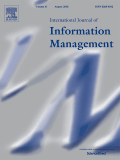Special Issue on Smart cities research: information management and policymaking perspectives
The exponential pace of urbanization places the question of wellbeing in cities/urban areas at the heart of the policy debate. Advances in ICT along with digitization bear the promise of that new services will be available to cities’ inhabitants and that their accessibility and quality will correspond with the citizens’ ability to use them (Visvizi et al., 2018). Against this backdrop, a vibrant field of research emerges where the promise new technologies bear for cities/urban space is explore in detail. The key strands of research include wearable technologies, cloud computing, data science, big data insights, social networks web applications and Internet technologies (Lytras et al, 2017).
In the Digital Agenda for Europe (European Commission, 2014) a broad conceptualization of smart city is provided. That is, a smart city defined as ‘a place where the traditional networks and services are made more efficient through the use of digital and telecommunication technologies, for the benefit of its inhabitants and businesses’. This suggests that smart cities services include not only basic services necessary for the smooth operation of transportation networks, water supply and waste management, but also a variety of services enabling citizens’ participation in the process of interest aggregation, articulation and representation (Lytras and Visvizi, 2018 ; Targio et al, 2016 ; Chen et al ,2012). In other words, city and urban space in general require a new generation of services to address the evolving citizens’ and businesses demands. The good news is that advances in ICT may well enable us to meet these expanding demands and so effectively benefit citizens, the business sector and the polity. Arguably, several factors and dynamics are at work behind this growing multilayered interconnectedness among, on the one hand, emerging technology, services, business, citizens and polity, and the other hand, their evolving demands. If the objective is to employ emerging technology to offer new generation of services and, then, to secure wellbeing and prosperity in cities/urban spaces, it is imperative that these factors and dynamics are explored at length. This Special Issue aims to do just that.
Specifically, as cities/urban spaces develop, and socio-economic contexts evolve, smart cities research must remain sensitive to these processes. If the future of cities/urban areas is to be ‘smart’, the discussion on smart cities’ services needs to take into account the big data paradigm, shifts in the dominant socio-economic models implemented, eroding spheres of authority at the level of local administration and above, new modes of multilevel governance, demographic trends, health issues, questions of public safety as well as of security, to name just a few. What brings these issues together is how data and information are handled and what kind of policy responses are needed to make advances in ICT be at service of the cities/urban areas’ stakeholders.
The Editors of this Special Issue encourage submissions that address, but are not limited to, the following issues and topics:
- Big data paradigm and information management in cities/urban areas
- Social, economic, political and cultural factors and smart cities development;
- Smart transportation infrastructures;
- Smart clusters and innovation networks;
- data driven decisions for policy making, governance and strategy;
- codification of smart data for citizens and its standardization;
- context aware algorithms for advancing the provision of services;
- establishment of advanced networking capabilities (e.g., 5G networks);
- integration to a single access- one stop shop smart city services;
- and training and awareness of citizens to smart city skills and competencies advanced policy making and information management strategies
Submission Guidelines
All submissions have to be prepared according to the Guide for Authors as published in the Journal website at: https://www.elsevier.com/journals/international-journal-of-information-management/0268-4012/guide-for-authors
Authors should select “SI: Smart Cities Research”, from the “Choose Article Type” pull- down menu during the submission process. All contributions must not have been previously published or be under consideration for publication elsewhere. Link for submission of manuscript is: https://www.evise.com/evise/jrnl/IJIM
A submission based on one or more papers that appeared elsewhere has to comprise major value- added extensions over what appeared previously (at least 30% new material). Authors are requested to attach to the submitted paper their relevant, previously published articles and a summary document explaining the enhancements made in the journal version.
All submitted papers will undergo a rigorous peer-review process that will consider programmatic relevance, scientific quality, significance, originality, style and clarity.
The acceptance process will focus on papers that address original scientific contributions in the form of theoretical and experimental research and case studies applying new perspectives for Information management and smart Cities Research.
Guest Editors
- Miltiades D. Lytras, PhD
- Peter E.D. Love, Sc.D., Ph.D.
- Anna Visvizi, PhD
- Ernesto Damiani, Prof.
- Hanbin Luo, PhD
References
- Anna Visvizi, Miltiadis D. Lytras, (2018) “Rescaling and refocusing smart cities research: from mega cities to smart villages”, Journal of Science and Technology Policy Management, Vol. 9 Issue: 2, pp.134-145, https://doi.org/10.1108/JSTPM-02-2018-0020
- Lytras M., Raghavan, V. and Damiani E. (2017), “Cognitive Computing and Big Data Analytics Research: From Metaphors to Value Space for Collective Wisdom in Human Decision Making and Smart Machines. Int. J. Semantic Web Inf. Syst., 13(1): 1-10
- Chen, H., Chiang, R., and Storey V. (2012), Business Intelligence and Analytics: From Big Data to Big Impact, MISQ, 36(4): 1165-1188
- Hashem, Ibrahim Abaker Targio, Chang, Victor, Anuar, Nor Badrul, Adewole, Kayode, Yaqoob, Ibrar, Gani, Abdullah, Ahmed, Ejaz and Chiroma, Haruna (2016) The role of big data in smart city. International Journal of Information Management, 36 (5), 748-758. (doi:10.1016/j.ijinfomgt.2016.05.002).
- Lytras, M., & Visvizi, A. (2018). Who Uses Smart City Services and What to Make of It: Toward Interdisciplinary Smart Cities Research. Sustainability, 10(6), 2018. MDPI AG. Retrieved from http://dx.doi.org/10.3390/su10061998
- Anna Visvizi, Miltiadis D. Lytras, Ernesto Damiani, Hassan Mathkour, (2018) “Policy making for smart cities: innovation and social inclusive economic growth for sustainability”, Journal of Science and Technology Policy Management, Vol. 9 Issue: 2, pp.126-133, https://doi.org/10.1108/JSTPM-07-2018-079



